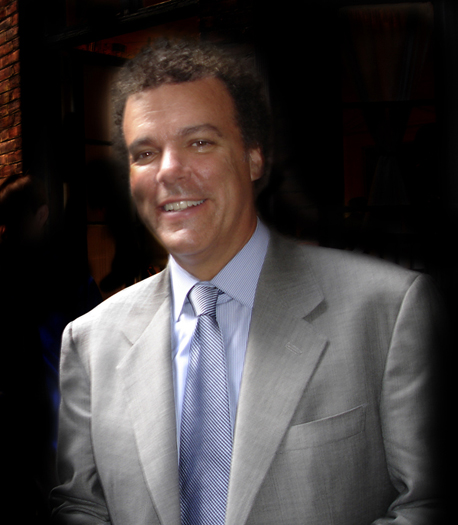
Water Mill resident Jamie Singleton set out to entertain thousands of readers with his financial thriller, “A Standard Deviation,” which took him nearly a year to finish and was published in October 2010.
A Yale College graduate and University of Chicago alumni, after college, Mr. Singleton worked in New York for Lehman Brothers, and after 11 years, he founded a private equity firm with several other Lehman colleagues. But in 2005, he decided that it was a good time to compile his experiences in finance and start writing a book.
“In 2005, I decided to get out of that business and look for something new to do,” Mr. Singleton said during a telephone interview this summer. “It took me 11 months to write it. I spent a lot of time editing. It was a big project for me, being a first-time author.”
“A Standard Deviation,” a novel inspired by the recent stock market crash, revolves around several characters who play the numbers to their personal advantage. In the book, President Chuck Lowery strains to maintain his “Economic Revolution” plan until the end of his term, and to execute this plan, advisors taint financial data so that it appears more prosperous than in reality. For protagonist John Aichenhead, an FBI agent who has grown suspicious of the corruption, the story that he’s unraveling represents a tangled web of mischief and illegality.
Mr. Singleton, who said that he spent most of his research time on the Bureau of Labor Statistics and other government agencies, explained that he had this plot in his mind for more than 20 years.
“On one level, I had to choose a genre. I chose the financial world because I spent almost 30 years around it,” Mr. Singleton said. “The thing that fascinates me about human nature is belief, and if you allow that source of information, it’s almost like finding an itch and scratching it.”
Mr. Singleton added that “people who cheat are fascinating” to him. He has incorporated his interest of these underlying motivations in his novel.
“When the markets were crashing and every day the news came on, the market was waiting for whatever iota of information was said,” he explained. “It was just up and down and it was that way because people were willing. So I asked myself, ‘what if the info was manipulated? What if [statistical analysts] were doing it for both a national and personal motivation?’”
Mr. Singleton not only wrote the book, but published it himself as well.
“I wrote this manuscript and kind of did a Wikipedia editing job where I gave the manuscript to 20 friends. The people were friends of mine, heads of litigation firms. I then took that to agents, and I learned that if you’re just writing a book that’s intelligent, you couldn’t get an agent,” he said. “I had to invest a bunch of my own money to put it out. I found a printer and found somebody who specializes in distribution. I decided to self publish and use social media to get the story out about the book and then sell enough copies to catch the attention of agents.”
But Mr. Singleton didn’t want to merely write a novel about the economy, he said.
“I was attempting to write an intelligent piece of entertainment. The thought-provoking piece of it is, maybe we ought to be more careful, look more closely at the type of information that is said to the public,” he said. “Let’s look more carefully at the financial institutions and understand everybody’s motives. Ultimately it’s a big money game; an unholy alliance between the president and Wall Street.”
The author said that it should be easy for East Enders to connect to the book, with several allusions to places here, including the Golden Pear and La Parmigiana in Southampton and Main Beach in East Hampton. Mr. Singleton also invented an “intrepid reporter” from the Southampton Press, though he jokingly explained that the journalist did not yet represent anyone he knew.
While he’s not working on Wall Street, Mr. Singleton is progressing on his second book “Red Herring,” which is a prequel to “A Standard Deviation” and revolves around “cheaters who bamboozle everyone and who are running for their lives,” he reported. Mr. Singleton added that he plans to write a third book in the series, which will ultimately be a sequel to “A Standard Deviation.”
“The encouraging thing for me is people going ‘Wow, what made you think of this?’” he explained.
Mr. Singleton said that he appreciates that his readers understand that he wanted people to read the book and alter their perspective of the 2008 crash.
“Over time, money and power are the two most interesting topics,” he said. “I’m imagining my readers sitting on the beach and getting a kick out of it.”